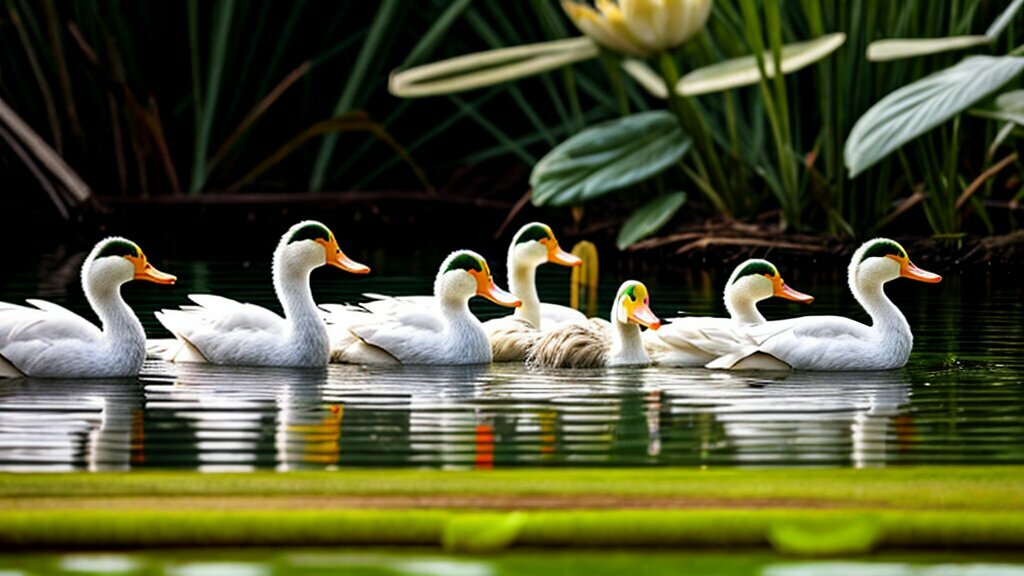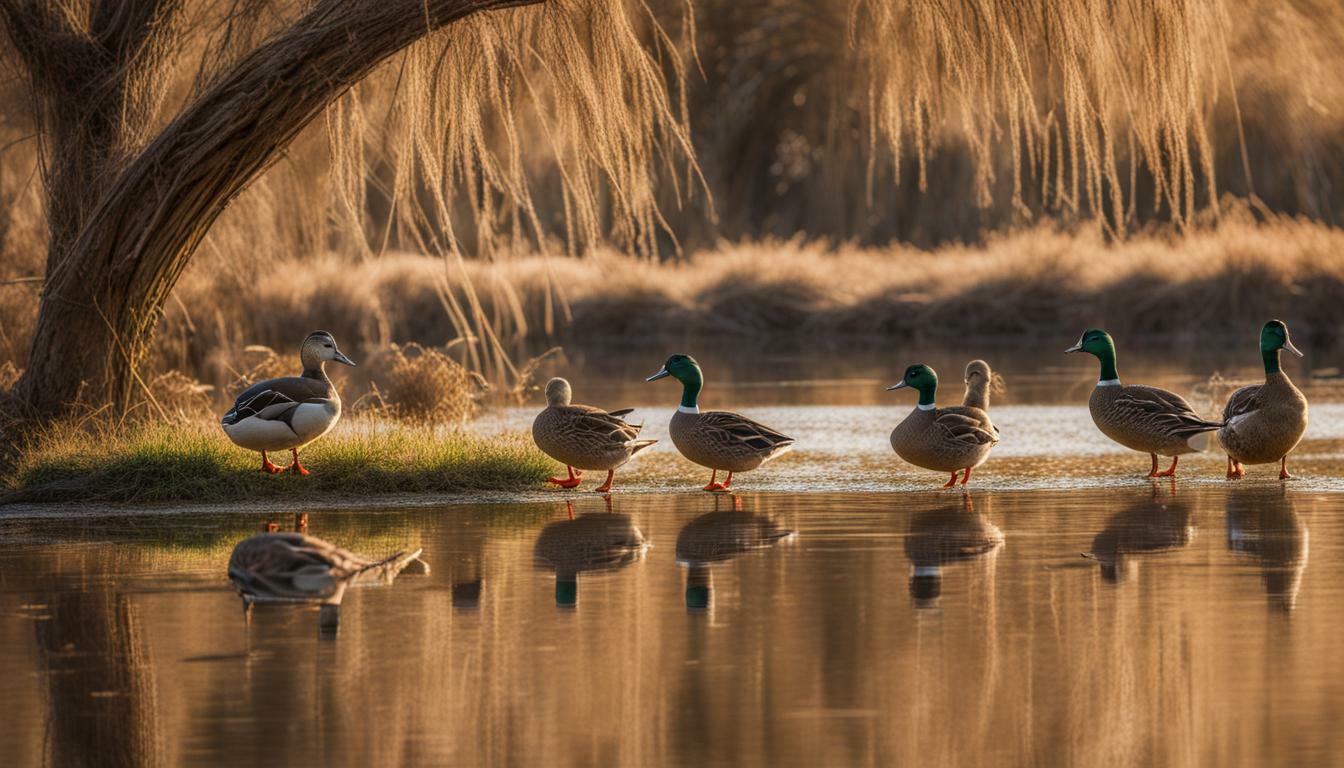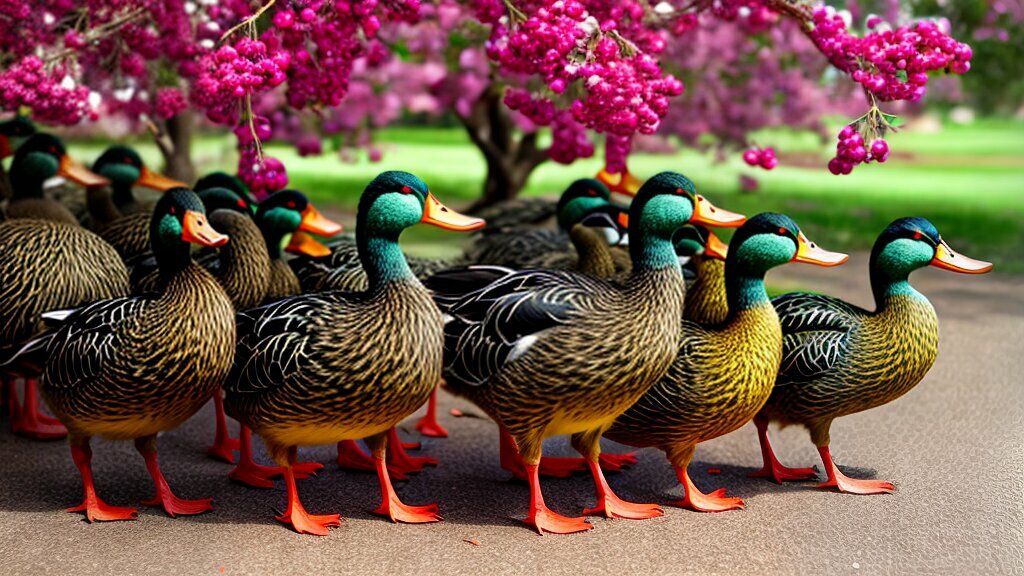Can Ducks Eat Cooked Rice?

Table of content:
Rice is a common staple food for humans across the world. Its popularity has led many duck owners to wonder whether ducks can eat rice too. The short answer is yes, ducks can safely eat cooked rice in moderation. However, there are some important factors to consider before feeding rice to ducks.
Feeding Rice to Ducks
Ducks are omnivorous birds that can eat a wide variety of foods, including grains like rice. Wild ducks graze on grass, aquatic plants, seeds, insects, small fish, frogs, and more. They have diverse diets to get a mixture of protein, carbohydrates, vitamins, minerals, and fiber.
As pets or livestock, domesticated ducks rely on their owners to provide a nutritious, balanced diet. Rice can be part of this diet, but it should not be a duck’s main food source. Rice is a good source of carbohydrates and energy, but it lacks vital protein, vitamins, and minerals that ducks need.
Cooked rice is safer and easier for ducks to digest than raw rice. The grains soften during the cooking process, making it easier on a duck’s digestive system. Some good ways to prepare rice for ducks include boiling, steaming, or parboiling.
When feeding rice, it’s important to combine it with other nutritious foods like leafy greens, insect and seed mixes, vegetable scraps, or commercially prepared duck feed. This ensures the duck receives balanced nutrition. An all-rice diet would lead to deficiencies over time.
Nutritional Value of Rice for Ducks
The main nutrient rice provides for ducks is carbohydrates. Duck feeds typically contain around 60% carbohydrates since ducks use carbs as a major energy source.
Here are some specifics on the nutritional value of rice for ducks:
- Carbohydrates: Rice is around 90% carbs by weight. The starch in rice provides steady energy.
- Protein: Rice only contains about 2-3% protein, while duck feeds contain 16-20% protein minimum. Ducks need ample protein for growth and egg production.
- Fat: Rice contains only trace amounts of fat. Ducks require 2-5% fat in their diet for energy reserves.
- Vitamins: Rice has small amounts of B vitamins but lacks other essential vitamins ducks need like vitamins A and D.
- Minerals: Rice is low in calcium, phosphorus, magnesium, and zinc which are crucial minerals for ducks.
So in summary, rice gives ducks a carbohydrate boost but does not provide a complete nutritional profile. It must be combined with other foods to meet a duck’s needs.
Benefits of Feeding Cooked Rice to Ducks
Here are some of the potential benefits of adding small amounts of cooked rice to a duck’s diet:
- Energy: The carbohydrates in rice provide ducks with a readily available source of energy. This can help sustain an active duck.
- Digestibility: Properly cooked rice is easier for ducks to break down and digest than raw rice or whole grains. The cooking process softens the grain.
- Weight gain: The extra calories from rice can contribute to weight gain in underweight or recovering ducks that need more calories.
- Cost: Rice is typically an inexpensive grain, especially when bought in bulk. This can help lower the cost of feeding ducks.
- Variety: Rice adds variety to a duck’s diet which can increase their interest in eating.
As long as rice is fed in moderation as part of varied diet, it can provide these benefits for ducks. However, it should never make up the bulk of their food intake.
Potential Concerns of Feeding Rice to Ducks
While rice can be a supplement in a duck’s diet, overfeeding it can cause some problems:
- Nutritional deficiencies: Not providing adequate protein, vitamins, and minerals found in other foods but missing from rice.
- Digestive issues: Raw rice may ferment in a duck’s digestive tract causing upset stomach.
- Carbohydrate overload: Excess rice consumption can lead to obesity and other health issues.
- Angel wing: A deformity caused by excess protein and calcium deficiency, which rice could contribute to.
- Botulism risk: Improperly cooked rice can harbor botulism spores, although the risk is low.
To avoid these problems, rice should be:
- Cooked thoroughly and tested for internal temperature.
- Limited to occasional small servings for ducks.
- Not relied on as a sole food source.
With a balanced diet and moderation, rice can be an excellent supplemental carbohydrate for ducks. But their overall nutritional requirements must be met.
Best Practices When Feeding Rice to Ducks
If you want to incorporate rice into your ducks’ diet, here are some tips:
- Cook it thoroughly: Rice should be boiled, steamed, or parboiled to properly soften the grains for digestibility. Check internal temperature.
- Limit portions: Rice should make up no more than 10-20% of a duck’s daily food on occasion. Avoid free-feeding rice.
- Combine with other foods: Mix rice with leafy greens,duck feed, vegetables, seeds, or insects to create balanced nutrition.
- Avoid seasonings: Do not feed ducks rice seasoned with onions, garlic, salt, butter, or other flavorings meant for humans.
- Supervise feeding: When first offering rice, watch to ensure all ducks can digest it well. Discontinue if any have issues.
- Use enriched products: Choose rice enriched with vitamins and minerals to add more nutritional value for ducks.
- Remove uneaten portions: To avoid spoilage, pick up any rice not consumed within 20-30 minutes after feeding.
Following these best practices will allow you to safely incorporate rice as supplemental food for ducks.
Can Ducks Eat Cooked Parboiled Rice?
Parboiled rice is partially cooked before being dried and milled. This process drives some B vitamins and minerals from the bran into the grain. Parboiled rice is a good choice for ducks because it is highly digestible once fully cooked. The extra vitamins and minerals also make it more nutritious than regular white rice.
Here is some additional information on feeding parboiled rice to ducks:
- Cooking methods: Parboiled rice requires longer cooking times to fully soften the grains. Boiling or stewing works best.
- Nutrition: Parboiled rice contains about 80% more vitamin B3, 50% more vitamin B6, and 20% more potassium than regular white rice.
- Portion sizes: Since parboiled rice is more nutritious, ducks can eat a slightly larger portion as part of a meal. About 1⁄4 – 1⁄3 cups per adult duck is appropriate.
- Combine with proteins/produce: Mix parboiled rice with shredded greens, finely chopped eggs, meal worms, duck feed, or other sources of nutrients.
- Caution for young ducks: Heavily parboiled grains may still be too tough for baby ducklings. Opt for well-cooked white or brown rice.
Parboiled rice can add beneficial nutrition and variety to an adult duck’s diet when used properly as part of a balanced diet. Cook it thoroughly and limit portions to supplemental feedings a couple times a week.
Can Baby Ducks Eat Cooked Rice?
Baby ducks under 6 weeks of age have different nutritional needs and more sensitive digestive systems than adult ducks. Here is some guidance on feeding cooked rice to baby ducklings:
- Wait until 3-4 weeks old: Ducklings under 3 weeks are typically unable to digest whole grains. Stick with starter feed or mashed boiled egg yolks.
- Feed very small portions: Once old enough, give ducklings only 1-2 teaspoons of cooked rice max per feeding, a couple times a week.
- Combine with high-protein foods: Mix just a sprinkle of rice into egg, duck starter feed, mealworms, etc. to create a balanced meal.
- Avoid parboiled or brown rice: The tougher textures will be hard for a duckling to chew and digest. Use white rice.
- Mash or grind: You can grind cooked white rice into a fine crumbly texture if the duckling is having difficulty eating whole grains.
- Watch for crop emptying: Monitor that the duckling’s crop empties properly after eating rice. Discontinue rice if digestion seems slow.
With supervision and proper portions, cooked white rice can be a safe occasional treat and supplemental carbohydrate for ducklings over 3-4 weeks old. But a high-protein starter feed should remain the dietary staple.
Can Ducks Eat Brown Rice Cooked?
Brown rice is a less processed whole grain rice that contains more B vitamins, minerals, and fiber than white rice. The outer bran layer gives it a chewier texture. Ducks can eat nutritious cooked brown rice in moderation.
Here are some tips for feeding brown rice to ducks:
- Cook thoroughly: The higher fiber content of brown rice means it requires more extensive cooking to soften. Boiling for 30-40 minutes is ideal.
- Limit feeding frequency: Only offer brown rice once or twice a week. The extra fiber can cause loose droppings if overfed.
- Portion size: Up to 1⁄3 cup cooked brown rice 2-3 times weekly is appropriate for most adult ducks. Reduce portions for smaller breeds.
- Combine with protein: Mix brown rice with duck feed, mealworms, boiled egg, bean sprouts, or other protein sources.
- Avoid for young ducklings: The chewy texture and fiber content make brown rice difficult for babies under 6 weeks old to digest.
The added nutritional benefits of brown rice make it a good occasional treat for adult ducks when prepared properly. But the same principles of moderation and diet variation still apply when incorporating rice.
In Conclusion
Rice can be a safe supplemental food for both adult and baby ducks when cooked thoroughly and fed in moderation. For optimal nutrition, rice should be mixed with protein sources and combined into a varied diet. Avoid overfeeding rice or relying on it as a sole food source. Following these tips allows duck owners to incorporate nutritious rice as part of a balanced home cooked or commercial duck diet.
Welcome. I’m Adreena Shanum, the proud owner of this website, and I am incredibly passionate about animals, especially poultry. I founded adreenapets.com as a labor of love, stemming from my desire to share my knowledge and experiences with poultry enthusiasts worldwide.




